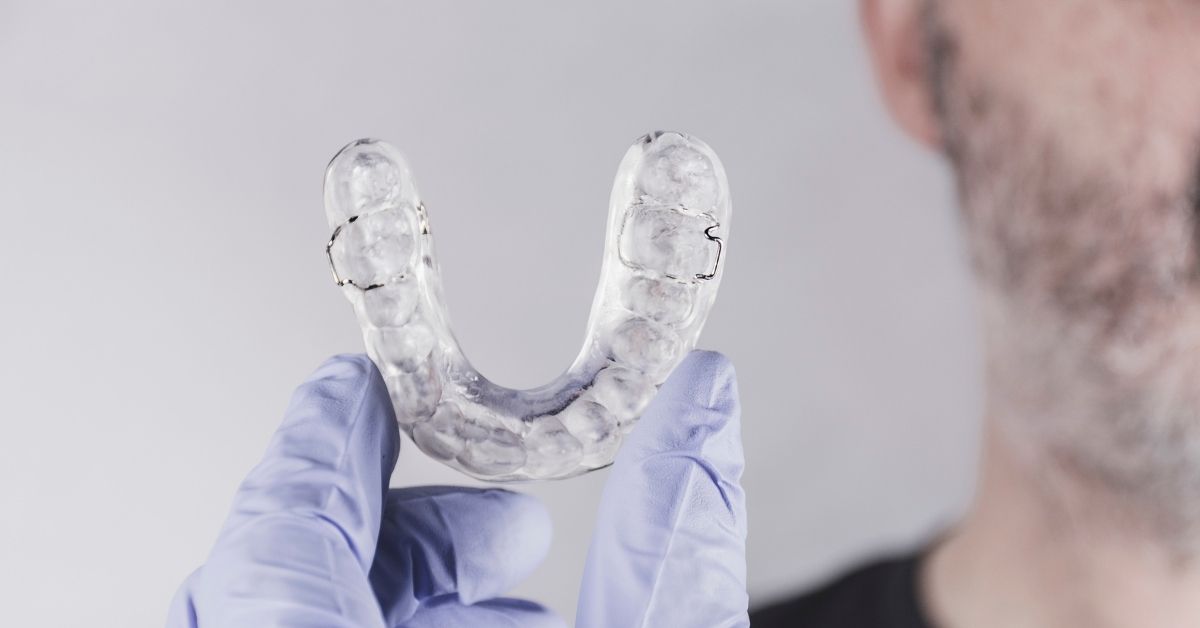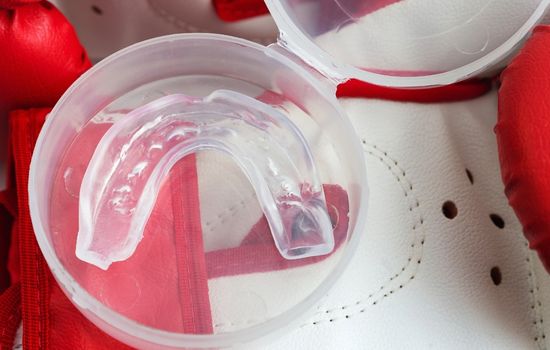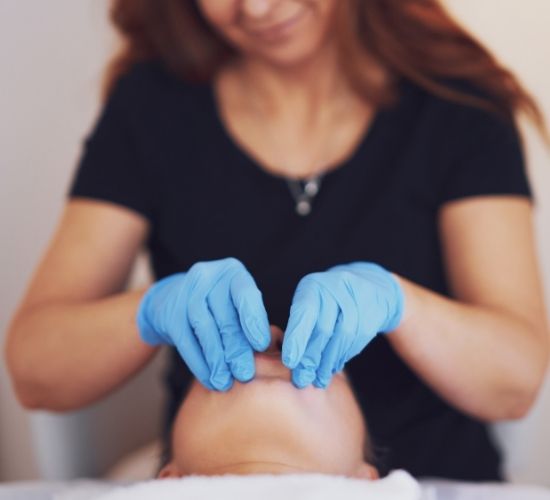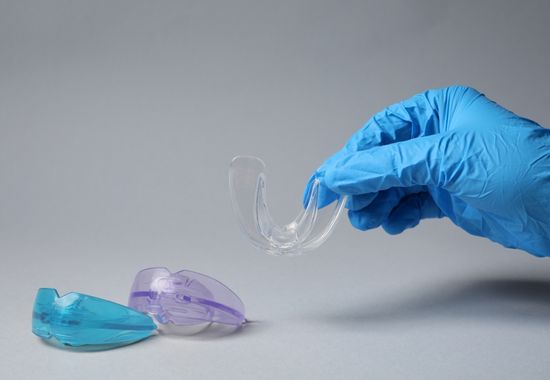Mouthguard for Teeth Grinding
If you wake up with a sore jaw, headaches, or chipped teeth, you might be grinding your teeth in your sleep—a condition known as bruxism. At Gentle Dental Centre, we help patients manage bruxism with a custom mouthguard for teeth grinding, designed to protect your teeth and relieve pressure on your jaw.

You might hear us refer to a mouthguard for teeth grinding as a night splint, an occlusal splint, or a night guard—they’re all essentially the same thing: a protective device worn during sleep to shield your teeth and jaws from the effects of grinding. These splints are typically made from hard acrylic or nylon, and when worn regularly, they help prevent tooth damage, ease jaw pain, and reduce tension headaches.
What Is Teeth Grinding (Bruxism)?
Teeth grinding happens when you clench or grind your teeth, often during sleep. It’s more common than you might think and can be linked to stress, anxiety, misaligned teeth, or even sleep disorders.

Some people worry they have poor dental health when they start noticing wear, chips or pain—but it’s often something as simple as grinding. We’re here to help you get to the root of it, and create a plan that protects your smile.
Common signs of teeth grinding include:
- Worn-down or chipped teeth
- Jaw pain or stiffness
- Headaches, especially in the morning
- Clicking or popping jaw joints
- Sensitive teeth
- Disrupted sleep
Do Mouth Guards Really Help with Teeth Grinding?
Yes. A custom-fitted mouth guard for teeth grinding create a protective barrier between your upper and lower teeth, preventing further wear and damage while also helping your jaw muscles relax. They don’t just stop the grinding—they can improve sleep quality, reduce pain, and prevent future dental treatment caused by long-term wear.

What Happens If I Need a Custom Mouth Guard for Teeth Grinding?
We’ll assess your symptoms and fit you for a custom mouth guard for teeth grinding that suits your bite.
Begin your journey to a beautiful smile at Gentle Dental Centre.
The process includes:
A dental consultation and bite analysis
An impression of your teeth
Custom fabrication in a dental lab
A final fitting for comfort and adjustments
It usually takes a few appointments, but we’ll do our best to get your mouth guard ready as soon as possible. Your comfort and results are our top priority.
What Can I Use Instead of a Mouthguard for Grinding Teeth?
While a mouthguard for teeth grinding is a common and effective treatment, they’re not the only solution. If a night guard isn’t the right fit for you, we can help you explore other supportive options.

Alternatives may include:
- Jaw physiotherapy to release tension and support muscle function
- Stress management techniques or sleep hygiene improvements
- A referral for muscle-relaxing treatments such as Botox
- Minor bite adjustments if alignment is contributing to the grinding
We don’t offer Botox or jaw physiotherapy within our clinic, but we can refer you to trusted local providers we work with regularly. Our goal is to create a treatment plan that works with your lifestyle and helps you feel comfortable and in control.
How Often Should You Wear a Mouthguard?
If your bruxism is frequent or causing symptoms, we usually recommend our patients wear their night guard for teeth grinding every night while you sleep. Grinding is often more noticeable during times of heightened stress or anxiety, so even if you don’t need it every single night long-term, it’s a good idea to use it consistently during those periods.
Some people can reduce how often they wear their guard over time, while others find that nightly use offers the best ongoing protection. We’ll help guide you based on your symptoms, lifestyle, and any changes over time.

Caring for Your Night Guard (and Bringing It to Appointments)
Once you have your mouthguard for teeth grinding, caring for it is easy—and essential for longevity and hygiene.

Care tips include:
- Rinsing your guard with water after each use
- Brushing it gently with a soft toothbrush (no toothpaste)
- Letting it air dry completely before storing it in its case
- Occasionally soaking it in a mouthguard-safe cleaning solution or mouthwash
Also, make sure to bring it to all future dental appointments. We’ll check that it still fits properly—especially after any recent treatment like a filling or crown. If your guard no longer fits, it won’t protect your teeth properly, so routine checks are key.
Still Wondering if a Mouthguard for Teeth Grinding Is Right for You?
There’s no one-size-fits-all answer, but we’re here to help you make the best decision. Whether you’ve just noticed signs of grinding, or your current night guard isn’t doing the trick, we’ll take the time to assess what’s going on and help you move forward with confidence.


